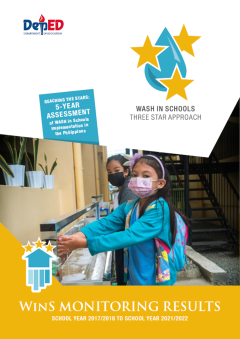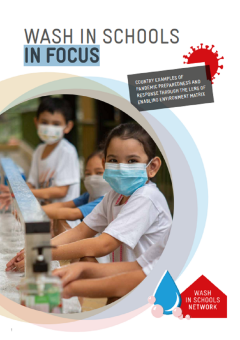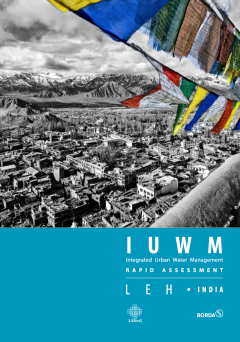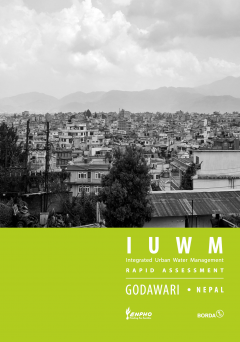Raising general awareness for sustainable WASH in institutions and gender equality by creating discussion fora and enhancing networking opportunities.
Background
Why focus on WASH in institutions?
Basic WASH services in settings like schools, health care facilities and workplaces are critical to the achievement of Sustainable Development Goal (SDG) targets on education and health. Aligning the work of WG 7 with the SDGs, it is therefore a logical step for WG 7 to extend its focus to WASH in institutions (i.e. schools, healthcare facilities, workplaces, religious settings, prisons) with the goal of strengthening water, sanitation, and hygiene in schools and other institutions within community structures.
Doing so, WG 7 can build on its past activities in the area of WASH in schools, which as of now will remain the focus of its work. The Three Star Approach to WASH in Schools (UNICEF/GIZ 2013), for example, even though conceived and implemented long before the adoption of the Agenda 2030, addresses a number of SDGs and brings them to life in an integrated, yet simple framework.
In order to delve into other institutional settings, it is suggested that experts from the health sector are invited as observers to the next SuSanA meetings (SuSanA Anniversary, WG Meeting Minutes, 01/2017).
Why focus on gender equality?
Taking gender aspects into account is essential for sustainable sanitation and hygiene. Targets 6.1. and 6.2 (“equitable access”, “equitable sanitation and hygiene”) are prerequisites for wider improvements in gender equality (SDG 5). In turn, gender inequality becomes particularly apparent when looking at water, sanitation and hygiene issues in developing countries.
The provision of hygiene and sanitation is often considered a woman’s task. Women’s hygienic needs are often silenced or ignored: menstruation, for instance, is considered a taboo in many societies, resulting in insufficient menstrual hygiene management (MHM). Moreover, women are non- or at best underrepresented in decision-making processes regarding toilets, sanitation programs or projects which oftentimes results in female concerns with regard to sanitation practices being rarely addressed. Yet in order to achieve SDG 6 (as well as SDG 4 and 5), the needs of half the population cannot be ignored.
The goal of WG 7 is therefore the mainstreaming of gender into sanitation programs and the involvement of men and women into sanitation projects.
Objectives
This working group has two goals:
a. To strengthen water, sanitation, and hygiene (WASH) in schools and other institutions within community structures. To learn more about the work of WG 7 in the field of WASH in schools, see Factsheet 7a “Sustainable Sanitation for school” (2012, currently under revision).
b. The mainstreaming of gender into sanitation programmes and the involvement of men and women into sanitation projects. To learn more about the work of WG 7 in the field of gender equality, see Factsheet 7b “Integrating a gender perspective in sustainable sanitation” (2012).
Activities achieved so far
- addressing the specific needs of both men and women in sustainable sanitation so that both accept the sustainable sanitation solutions: Factsheet: Integrating a gender perspective in sustainable sanitation
- addressing WASH in Schools and e.g. to show the link of improved school sanitation with academic performance particularly for education of girls and the rural poor. Fact sheet Sustainable sanitation for schools
Collection of WASH in School stories from SuSanA partners:
http://www.susana.org/en/resources/library/details/2077
http://www.susana.org/en/resources/library/details/2320
What is planned and how can you get involved?
- In light of the Agenda2030, we plan to update the two fact sheets, revising and linking them to the overall SDG agenda.
- We plan to collect new case stories for successful WASH in institutions, and especially on operation and maintenance and prepare a third publication of stories.
If you are interested in the planned activities, please contact us!
Beyond these: if you interested in or work with sanitation in rural communities, gender and WASH in institutions, you are most welcome to share your experiences with other players in the sector! Be part of the international sanitation community! Take part in the forum discussions, subscribe to the mailing list and contact us! Looking forward to hearing from you!
show less …
Working Group Leads

This email address is being protected from spambots. You need JavaScript enabled to view it.
Thrive Networks, Vietnam

GIZ Philippines


















